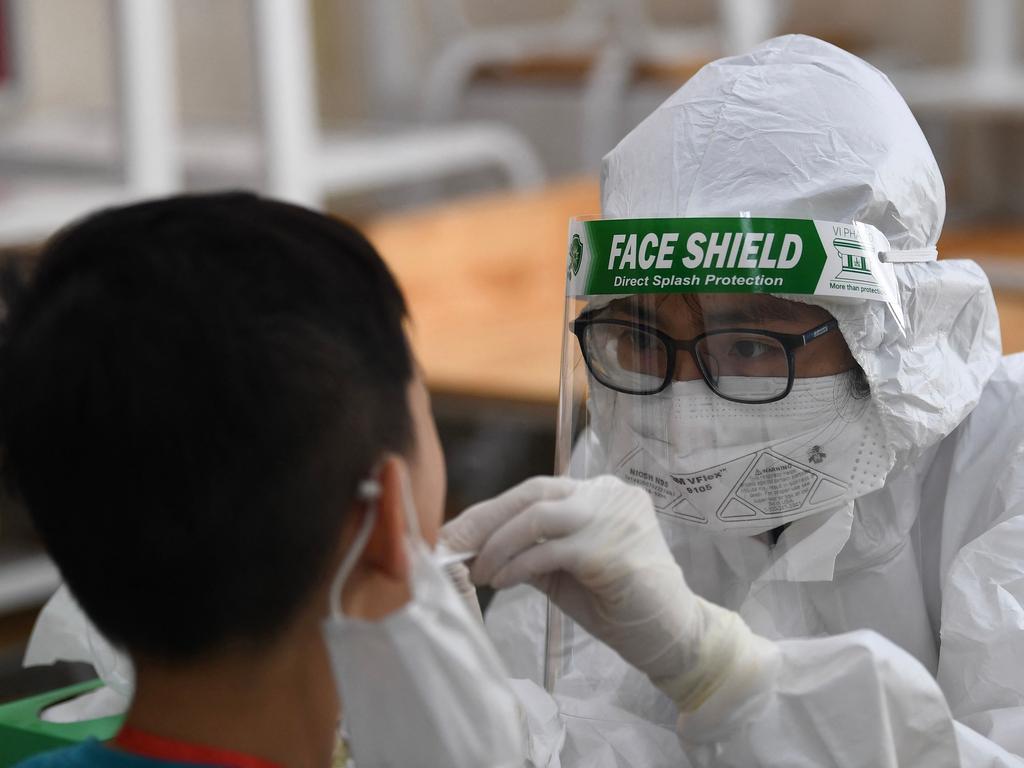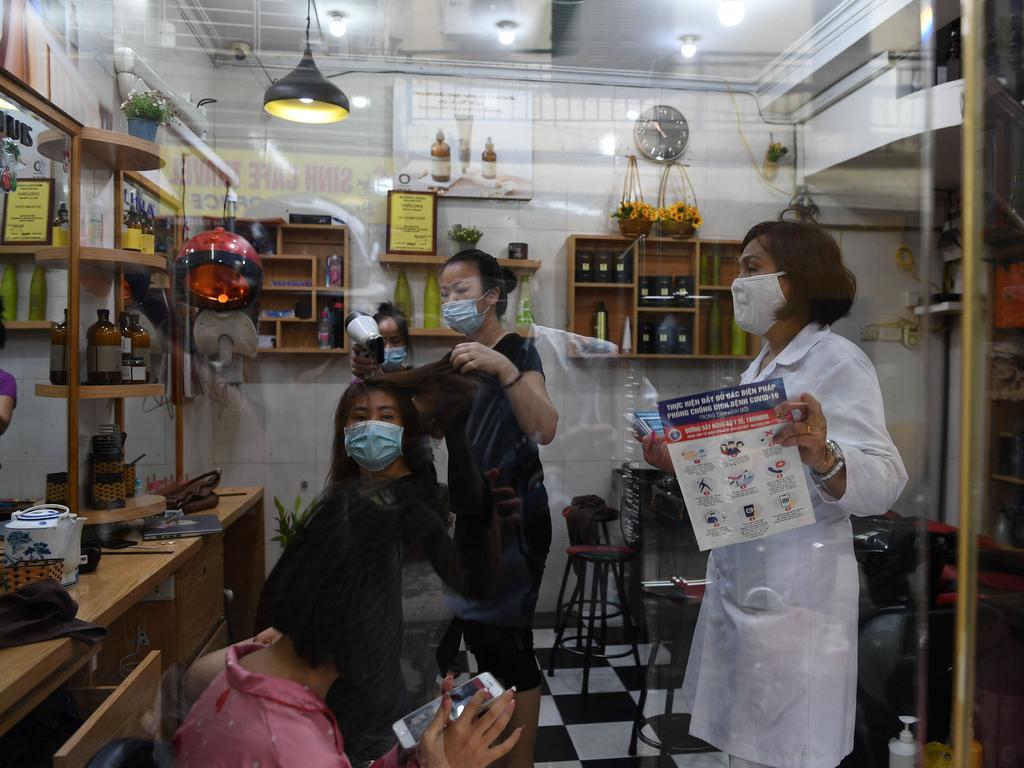‘New hybrid variant’ of Covid-19 discovered in Vietnam ‘spreads quickly’
A country that is home to 97 million people has “discovered a new hybrid variant” of coronavirus that has one worrying characteristic.

A country that is home to 97 million people has “discovered a new hybrid variant” of coronavirus that has one worrying characteristic.
Health officials in Vietnam say they are dealing with a variant that is a combination of the Indian and British strains as fresh outbreaks take hold in big cities including Hanoi and Ho Chi Minh City.
There have been more than 6800 new cases and 47 deaths in Vietnam since April when authorities had hoped they were on top of the pandemic there.
“We have discovered a new hybrid variant from the Indian and the UK strains,” Health Minister Nguyen Thanh Long told a national meeting on the pandemic Saturday, according to state media.
Welp—“Vietnam has uncovered a new Covid-19 variant combining characteristics of the two existing variants first found in India🇮🇳(#B16172) & UK🇬🇧(#B117)†🇻🇳 Health Minister said. “The new variant is very dangerous†and “spreads quickly by airâ€. #COVID19 🧵https://t.co/46iOLGinSbpic.twitter.com/PSwRUqATE6
— Eric Feigl-Ding (@DrEricDing) May 29, 2021
“The characteristic of this strain is that it spreads quickly in the air. The concentration of virus in the throat fluid increases rapidly and spreads very strongly to the surrounding environment.”
He did not specify the number of cases recorded with this new variant but said Vietnam will soon announce the discovery in the world’s map of genetic strains.
Vietnam’s Central Institute of Hygiene and Epidemiology said in a statement Saturday that its scientists had detected gene mutations in four out of 32 patient samples through gene sequencing.
There were seven known coronavirus variants in Vietnam before Long’s announcement, according to the Ministry of Health.
The communist country has previously received widespread applause for its aggressive pandemic response, with mass quarantines and strict contact tracing helping keep infection rates relatively low.
Vietnam defeated its second wave, but it did so with a mix of hard and fast rules and creative initiatives to influence good behaviour — including a viral song about handwashing.
They locked people down in April to stifle a first wave only for it to return in mid-August, much worse this time.
Michael Toole, Professor of International Health at the Burnet Institute, wrote in The Conversation this week that Vietnam’s response had been a huge success.
“As during the first wave, blanket testing was conducted in Da Nang, transport in and out of the city was cancelled, and bars and restaurants closed,” he wrote.
“The same local measures were implemented in certain neighbourhoods in Hanoi when new cases were identified. The country has not reported any community transmission since early September.
The new round of infections has resulted in strict limits on movement and business activity being imposed once again.
Cafes, restaurants, hair salons and massage parlours as well as tourism and religious spots have been ordered to close in various areas of the country.

Vietnam — a country of 97 million people — has vaccinated a little over a million citizens.
It is now ramping up its jab rollout and hopes to achieve herd immunity by the end of the year, according to the health minister.
Authorities have called on people and businesses to donate money to help procure vaccines, while embassies and international organisations have been contacted for assistance, state media reported.
The country presently has close to two million doses of AstraZeneca’s vaccine remaining, but said it is buying more than 30 million doses of the Pfizer shot.
It is also in talks with Russia to produce Sputnik V, according to state media, and is working on a home-grown vaccine.
In nearby Thailand, the government on Saturday took exception to media reports in Britain that labelled a new strain causing concern there as the “Thai variant”.

The strain was first detected in Thailand in a 33-year-old Egyptian traveller, UK health authorities said, but 109 cases have since been found in Britain.
“Principally speaking, it should not be called the Thai variant because the infected person is from overseas,” said Opas Kankawinpong, head of Thailand’s disease control department.
— with AFP




